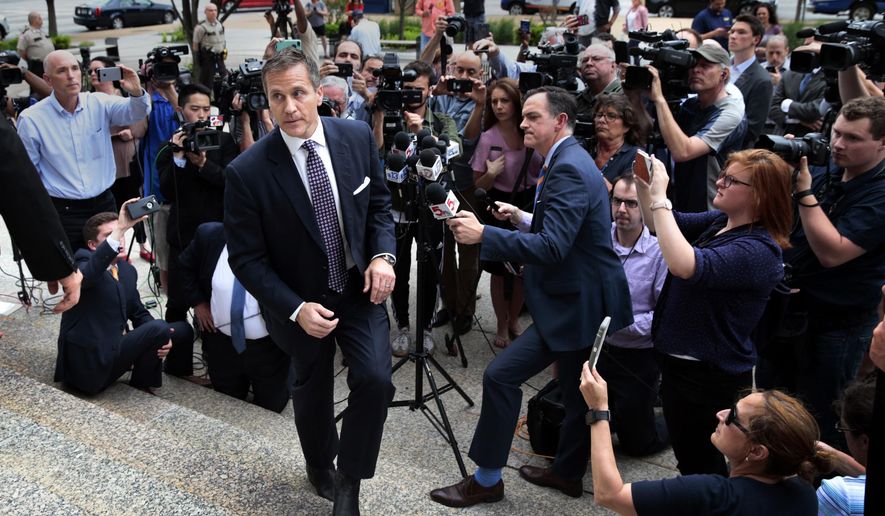
IOWA CITY, Iowa (AP) - One app promotes itself as a way to discuss sensitive negotiations and human resources problems without leaving a digital record.
Another boasts that disappearing messages “keep your message history tidy.” And a popular email service recently launched a “confidential mode” allowing the content of messages to disappear after a set time.
The proliferation of digital tools that make text and email messages vanish may be welcome to Americans seeking to guard their privacy. But open government advocates fear they are being misused by public officials to conduct business in secret and evade transparency laws.
Whether communications on those platforms should be part of the public record is a growing but unsettled debate in states across the country. Updates to transparency laws lag behind rapid technological advances, and the public and private personas of state officials overlap on private smartphones and social media accounts.
“Those kind of technologies literally undermine, through the technology itself, state open government laws and policies,” said Daniel Bevarly, executive director of the National Freedom of Information Coalition[1]. “And they come on top of the misuse of other technologies, like people using their own private email and cellphones to conduct business.”
Some government officials have argued that public employees should be free to communicate on private, non-governmental cellphones and social media platforms without triggering open records requirements.
Lawmakers in Kentucky and Arizona this year unsuccessfully proposed exempting all communications on personal phones from state open records laws, alarming open government advocates. A Virginia lawmaker introduced a bill to exempt all personal social media records of state lawmakers from disclosure.
New Kansas Gov. Jeff Colyer went the opposite direction in February with an executive order that requires his staff to use official email accounts for all government business. He also banned private accounts for any communications related to “the functions, activities, programs, or operations” of the office.
In neighboring Missouri, Democratic lawmakers introduced a bill that would make clear that personal social media pages and messages sent through digital platforms such as Confide and Signal are public records as long as they relate to official business. The legislation arose because of a controversy involving use of the Confide app by former Gov. Eric Greitens, who resigned in June amid a series of scandals....
“We need to clarify the expectations, because we should not be allowed to conduct state business using invisible ink,” said state Rep. Ingrid Burnett, who said she’s disappointed the bill didn’t advance.The proposals were captured by a new Associated Press application called SunshineHub, a digital tool that tracks bills related to government transparency in all 50 states. They point to the mushrooming challenge of defining and maintaining government records in the smartphone era.The issue exploded into public view last year amid reports that several employees in the office of Greitens, then Missouri’s governor, had accounts on Confide. The app makes messages disappear immediately after they are
